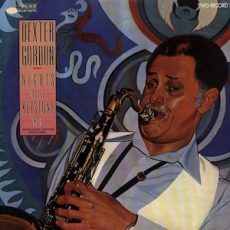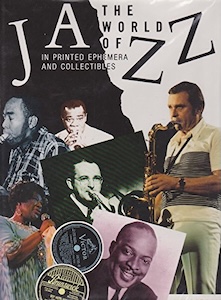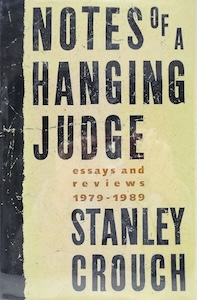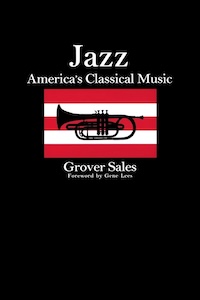
Requisites
Nights At The Keystone ~ Dexter Gordon | By Eddie Carter
Dexter Gordon’s return to the United States generated significant excitement among his fans. After his triumphant return to the Village Vanguard and his 1976 performance, which produced the album Homecoming, he began touring regularly. This morning’s album from the library features the tenor saxophonist and his quartet at one of San Francisco’s notable jazz clubs. Nights At The Keystone (Blue Note BABB-85112) is a two-record set documenting his performances over several nights in 1978 and 1979 at the Keystone Korner. George Cables on piano, Rufus Reid on bass, and Eddie Gladden on drums round out the group. The copy I own is the 1985 U.S. stereo release.
The album opens with the quartet’s tender rendition of Sophisticated Lady by Duke Ellington. Dexter introduces the song with a dreamy melody, which he sustains with remarkable sensitivity in his opening statement. George’s subsequent solo evokes a bygone era of innocence and joy. Dexter returns to add a few final gentle thoughts before the closing ensemble and audience’s applause. Gordon speaks to the audience and introduces It’s You or No One by Jule Styne and Sammy Cahn. The quartet launches into a spirited theme, then Gordon takes charge on the first solo, soaring into the stratosphere. Cables tackles the following solo at a brisk pace, then Gordon trades lively choruses with Gladden, paving the way for a swift return to the theme and a spirited finish.
The rhythm section opens Dexter Gordon’s Antabus with an energetic introduction. The quartet then is off to the races with a brisk melody. Dexter ignites the opening interpretation with fiery tenor saxophone lines. George continues cooking with agility in the following statement, then Dex takes the reins again briefly before the quartet takes the song out. Easy Living by Ralph Rainger and Leo Robin comes from the 1937 film of the same name and slows the ensemble down for the pianist’s introduction, segueing to the quartet’s gentle theme. Dexter’s opening statement is sure to melt all the tension in your body away with delicacy and tender warmth. Cables responds with a deceptively elegant approach that picks up the pace to midtempo ahead of Gordon’s return for the theme’ restatement and ending.
The tempo moves upward again to begin side three with the quartet’s lively version of Tangerine by Johnny Mercer and Victor Schertzinger. The rhythm section provides a lush foundation for Dexter’s melody to flow comfortably at an easy beat. Dexter takes the spotlight first with a down-home, soulful flavor that swings from the first note to the finale. George has the next spot and makes his presence felt preceding the closing chorus. More Than You Know by Vincent Youmans, Edward Eliscu, and Billy Rose begins with the group’s elegantly graceful introduction and melody. Gordon again shows off his sentimental side with a hauntingly tender lead solo. Cables steps up next for a short, serene statement that builds as it unfolds. Gordon has the final say ahead of the group’s gorgeous finale.
Side Four concludes the album with Come Rain or Come Shine, by Harold Arlen and Johnny Mercer, giving everyone a lengthy solo. The quartet’s medium tempo sets the song’s introduction and opening chorus in motion. Dexter is up first with a neatly paced stroll, then George delivers a splendid performance. Rufus walks with a soulful groove next, and Dexter and Eddie engage in a brief exchange before the quartet’s return and finale. Todd Barkan produced Nights at the Keystone, and Rich McKean managed the recording console. Malcolm Addey was the mixing engineer, and Rudy Van Gelder mastered the album.
The sound quality of this live album is exceptional, truly capturing the ambiance of Keystone Korner and offering an impressive soundstage that highlights The Dexter Gordon Quartet at their finest. If you’re searching for a top-notch live performance by one of jazz’s legendary tenor saxophonists, Nights at the Keystone by Dexter Gordon is well worth checking out during your next visit to the record store. It spotlights the tenor saxophonist in peak form, blending technical brilliance, improvisational flair, and deep musical chemistry throughout the set!
~ Homecoming (Columbia PG 34650) – Source: Discogs.com ~ Come Rain or Come Shine, Easy Living, More Than You Know, Tangerine – Source: JazzStandards.com © 2026 by Edward Thomas Carter
More Posts: choice,classic,collectible,collector,history,instrumental,jazz,music,saxophone

On The Bookshelf
The World of Jazz | Jim Godbolt
This book is exciting and interesting in so many ways. It is filled with amazing pictures from the Jazz Age that make history feel real and alive. The images tell the story of how jazz began in New Orleans and traveled all over the world, growing into the music we know today.
The author, jazz historian Jim Godbolt, clearly loves jazz, and his passion shines through every page. He doesn’t just show photos of musicians and famous places. He also shares colorful artwork from record covers, posters, magazines, and record labels. Some of these designs are legendary, especially posters for Dizzy Gillespie and Jazz at the Philharmonic, as well as jazz magazines like Record Changer.
The story of jazz is told through old newspapers, posters, books, reviews, and rare photographs. Many of these items are hard to find, which makes the book feel like a treasure chest of history. You learn that jazz is not only about music, but also about how it was shared, recorded, advertised, and turned into a business.
The book shows how jazz started with young, self-taught musicians who had very little, and how it slowly became a huge, worldwide industry. It is a book you can read again and again. Every time you look at the pictures, you notice something new—from poor neighborhoods and riverboats to exciting nightclubs and beautiful concert halls around the world.
With its big pages and powerful images, this book is fun to explore, easy to enjoy, and full of inspiration. I highly recommend it.
The World Of Jazz: 1990 | Jim Godbolt

On The Bookshelf
Notes Of A Hanging Judge | Stanley Crouch
Notes Of A Hanging Judge: Essays and Reviews, 1979-1989 is a 1990 collection of essays by Stanley Crouch that critically examines the American Civil Rights Movement, Black culture, and politics, arguing the movement became “loco” and self-defeating despite its initial nobility. The book features sharp, often controversial, critiques of figures like Jesse Jackson and artists like Toni Morrison and Spike Lee, using a blend of insider passion and journalistic rigor to analyze the Black experience in America.
The title refers to Crouch’s role as a harsh judge of the Civil Rights Movement, similar to a pirate-turned-judge who was hard on his former comrades. The book includes essays on race relations, Black middle-class life, the Bernhard Goetz case, Black homosexuality, and profiles of leaders like Jesse Jackson.
Crouch views the Civil Rights Movement as a noble cause that became mired in self-defeating nationalism and a lack of spiritual depth, losing its original majesty. Written with a virtuosic prose style, it balances passionate involvement with a reporter’s rigor, offering unique perspectives on public issues. He covers a wide range of topics, from politics and social issues to art and travel, often focusing on the African-American experience.
Notes Of A Hanging Judge: 1990 | Stanley Crouch
Oxford University Press

Daily Dose Of Jazz…
Alan Plachta was born on November 30, 1981 and raised in Buenos Aires, Argentina. Recently recorded in NYC his last album “Un viaje” in collaboration with Richard Nant, featuring Luis Perdomo on piano, Sam Sadigursky on reeds, Satoshi Takeishi on drums and Matt Pavolka on bass.
As a composer, arranger and conductor he has worked with the Boris Big Band, Orquesta Sudamericana, Kai de Raiz, and Orquesta de Cuerdas Elvino Vardado in collaboration with Juan Pollo Raffo.
Alan has played and/or recorded with numerous South American musicians such as Roberto Taufic, Hugo Fattoruso, Urbano Moraes, Daniel Maza, Robert Vincs, Alex & Nilusha, Alexandre Ribeiro, Ana Luiza and Luis Felipe Gama, Nicolás Ospina, Celeste Carballo, Ligia Piro, Liliana Herrero, and Cecilia Pahl among others.
A leader or co-leader, he has recorded five albums, the first in 2005. A prolific arranger and producer Nussbaum has collaborated as guitarist and guest arranger for Cambrio de Estacion, Roma, Soy Una Tarada, Desmesura, Este Tiempo, Ensamble Real Book Argentina, and Y De Amor No Supe Nada.
As a guitarist he has recorded ninetten albums and his compositions are included in Real Book Argentina. His educator role has Adam teaching ear training, arrangement, harmony and guitar. He is in charge of the Musical Language´s Technichs at the Tecnólogo en Jazz y Música Creativa career at UTEC.
Guitarist, composer, arranger and educator Alan Plachta continues to explore his music and his teaching.
More Posts: arranger,bandleader,composer,educator,guitar,history,instrumental,jazz,music

On The Bookshelf
Jazz: America’s Classical Music | Grover Sales
Jazz critic Grover Sales takes the reader on a journey of introduction to the history, complexity and criticism of the music in Jazz: America’s Classical Music. This book illustrated with photographs, is considered a classic text and an ideal guide for both beginners and those familiar with the genre.
In an engaging and conversational style, the renowned jazz teacher tells of the lives and music of the greats like Ellington, Tatum, Hawkins, Coltrane, Parker, Hines, Goodman, Armstrong, and many others. He does this with a mix of important facts, fascinating anecdotes, and brilliant interpretations.
The author was a prominent figure in the jazz world, he taught at Stanford University and worked as the publicity director for the Monterey Jazz Festival.
Jazz: 1984 | Grover Sales
Prentiss-Hall Press




